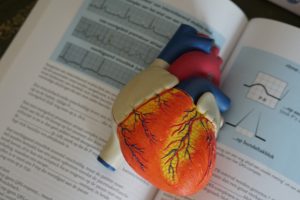Researchers are looking forward to introducing a new heart transplant method. Studies have been underway for years regarding “donation after cardiac death,” or DCD. This is a new way to use donor hearts from cardiac failure cases. However, DCD transplants with other organs have been done for years now. While it’s still in the developing stages, this method has had promising results.
Giving Hope to Cardiac Patients
Over 250,000 people in the U.S. are at the final stages of heart failure. Because of this, patients are in great need of transplants. Luckily, medical experts have discovered the positive effects of DCD. Through this procedure, organs are from patients who have died from cardiac arrest are being “reanimated.” Scientists use a machine to allow blood to permeate the heart after it has been taken from the donor. This allows experts to assess the functionality of the heart, something they were unable to do before. In December 2019, Duke University was the first team in the U.S. to successfully perform the transplant. One of the restrictions of this procedure is that the “donors can’t have died of circulatory death in some form.” Still, Dr. Jacob Shroder of Duke believes DCD will “expand the donor pool by 30%.” Ten of these transplants have already been successful, and the trials will continue until 2021.
been taken from the donor. This allows experts to assess the functionality of the heart, something they were unable to do before. In December 2019, Duke University was the first team in the U.S. to successfully perform the transplant. One of the restrictions of this procedure is that the “donors can’t have died of circulatory death in some form.” Still, Dr. Jacob Shroder of Duke believes DCD will “expand the donor pool by 30%.” Ten of these transplants have already been successful, and the trials will continue until 2021.
Background for DCD
A specialist at Brigham and Women’s Hospital speculates that we may be surprised by some recent findings. “A DCD donor heart may outperform a brain dead donor heart…the effects on prolonged brain death on the heart are quite jarring,” he says. The reason DCD transplants haven’t included the heart until now is because of its inability to pump oxygenated blood after death. The usual cold storage doesn’t allow for an assessment of heart function for any damage. Now, physicians are seeking new ways to overcome those barriers. The time it takes to remove the heart from the body can limit whether or not it’s usable. However, with the TransMedics Organ Care System, the machine will reanimate and assess the heart for physicians. Other countries, including Australia, have been performing DCD transplants for years now. First performed in Sydney, the procedure then found its way to the UK in early 2015. Soon, the UK hopes to have a retrieval system for DCD hearts. The downfall in some countries, including Australia, is the monetary cost. A doctor in Australia explains that the government doesn’t cover the transplant, therefore requiring “philanthropic donations.”
 The next step for the U.S. is to get FDA approval for the TransMedics system. On the plus side, the FDA has approved it for lung transplants, so the heart system should gain approval. Ideally, 50 successful DCD heart transplants will be complete by 2021, at which point TransMedics will be able to file for FDA approval. Aside from standard transplant risks such as organ rejection and death, TransMedics hasn’t heard of many other risks. Some patients may require “an external machine that pumps oxygenated blood to the body” until the heart is fully functional again. Since the first-ever DCD transplant in 2014, a majority of DCD patients are doing very well. TransMedics CEO Dr. Waleed Hassanein says DCD “could make heart transplantation more of a reality for all those patients who are on the waiting list.”
The next step for the U.S. is to get FDA approval for the TransMedics system. On the plus side, the FDA has approved it for lung transplants, so the heart system should gain approval. Ideally, 50 successful DCD heart transplants will be complete by 2021, at which point TransMedics will be able to file for FDA approval. Aside from standard transplant risks such as organ rejection and death, TransMedics hasn’t heard of many other risks. Some patients may require “an external machine that pumps oxygenated blood to the body” until the heart is fully functional again. Since the first-ever DCD transplant in 2014, a majority of DCD patients are doing very well. TransMedics CEO Dr. Waleed Hassanein says DCD “could make heart transplantation more of a reality for all those patients who are on the waiting list.”
Got Insurance Questions?
Empower Brokerage wants to help you understand what coverage you need and how to save money at the same time. We want to help you stay on top of your health.
CALL US at (844) 410-1320
Get affordable health insurance quotes by clicking here.
See our other websites:

